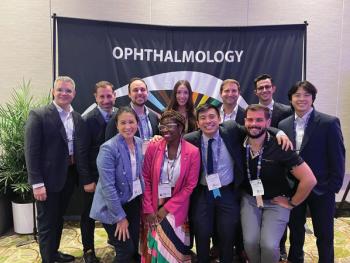
PMC-403 receives unanimous safety approval for 4mg single ascending dose cohort in Phase 1 clinical trial
PMC-403 is a novel TIE2-activating antibody with a mechanism that stabilizes pathological, leaky blood vessels.
The TIE2-activating antibody candidate, PMC-403, by PharmAbcine has received unanimous safety approval from the Safety Review Committee (SRC) for the 4mg single ascending dose (SAD) cohort in its Phase 1 clinical trial (NCT05953012) for neovascular age-related macular degeneration (nAMD). This Phase 1 trial targets patients with neovascular AMD who no longer respond to anti-VEGF standard therapies.
According to the company, the candidate PMC-403 is a novel TIE2-activating antibody with a mechanism that stabilizes pathological, leaky blood vessels. TIE2 receptors, expressed on endothelial cells, play a critical role in vessel normalization processes such as angiogenesis and intercellular adhesion, thereby inhibiting the progression of AMD.1
Dr. Weon Sup Lee, head of R&D and chief technology officer at PharmAbcine, stated in the press release1, "The successful completion of the 4mg single-dose study is a significant milestone, highlighting the potential of PMC-403 as a breakthrough treatment for AMD. As we move forward with the multiple-dose study, we aim to gather additional safety and efficacy data to establish a robust foundation for Phase 2 trials."
The company is preparing to begin enrollment for the 4mg multiple ascending dose (MAD) cohort and plans to continue its research with the goal of initiating a Phase 2 trial after confirming the safety and efficacy of the 4mg multiple-dose cohort.1
Beyond ophthalmology, PMC-403 is being explored in therapeutic areas, including vascular-related rare diseases, acute respiratory distress syndrome, inflammatory bowel disease, duchenne muscular dystrophy, traumatic spinal cord injury, oncology, and kidney diseases.1
Reference:
PharmAbcine Announces Safety Approval for 4mg Single-dose Cohort in Phase 1 Clinical Trial of PMC-403 for Neovascular Age-related Macular Degeneration. PharmAbcine Inc. October 14, 2024. Accessed October 17, 2024. https://finance.yahoo.com/news/pharmabcine-announces-safety-approval-4mg-015100465.html
Newsletter
Keep your retina practice on the forefront—subscribe for expert analysis and emerging trends in retinal disease management.












































